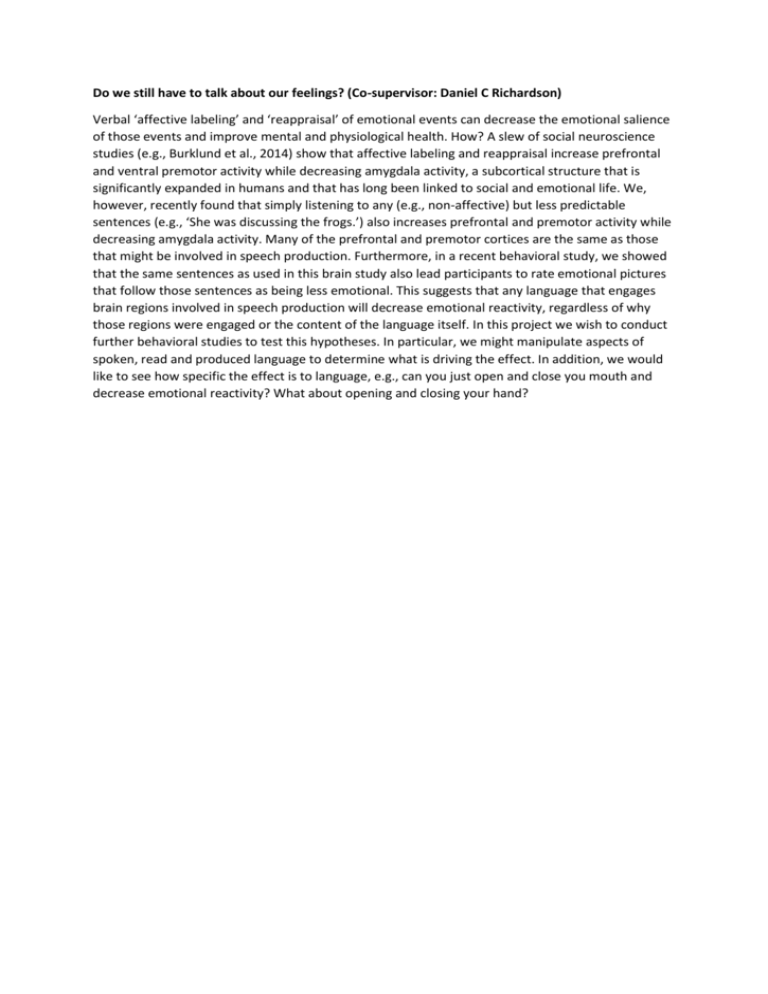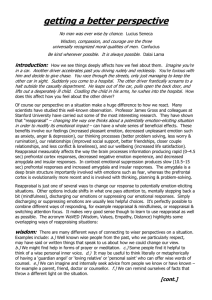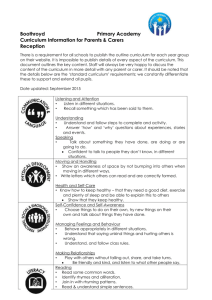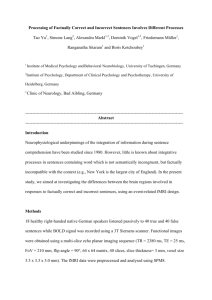Do we still have to talk about our feelings? (Co
advertisement

Do we still have to talk about our feelings? (Co-supervisor: Daniel C Richardson) Verbal ‘affective labeling’ and ‘reappraisal’ of emotional events can decrease the emotional salience of those events and improve mental and physiological health. How? A slew of social neuroscience studies (e.g., Burklund et al., 2014) show that affective labeling and reappraisal increase prefrontal and ventral premotor activity while decreasing amygdala activity, a subcortical structure that is significantly expanded in humans and that has long been linked to social and emotional life. We, however, recently found that simply listening to any (e.g., non-affective) but less predictable sentences (e.g., ‘She was discussing the frogs.’) also increases prefrontal and premotor activity while decreasing amygdala activity. Many of the prefrontal and premotor cortices are the same as those that might be involved in speech production. Furthermore, in a recent behavioral study, we showed that the same sentences as used in this brain study also lead participants to rate emotional pictures that follow those sentences as being less emotional. This suggests that any language that engages brain regions involved in speech production will decrease emotional reactivity, regardless of why those regions were engaged or the content of the language itself. In this project we wish to conduct further behavioral studies to test this hypotheses. In particular, we might manipulate aspects of spoken, read and produced language to determine what is driving the effect. In addition, we would like to see how specific the effect is to language, e.g., can you just open and close you mouth and decrease emotional reactivity? What about opening and closing your hand?











